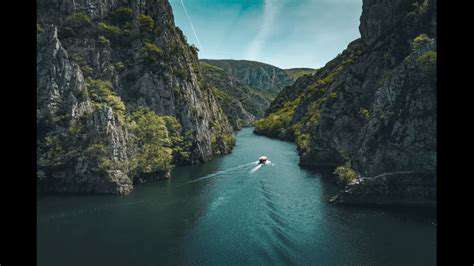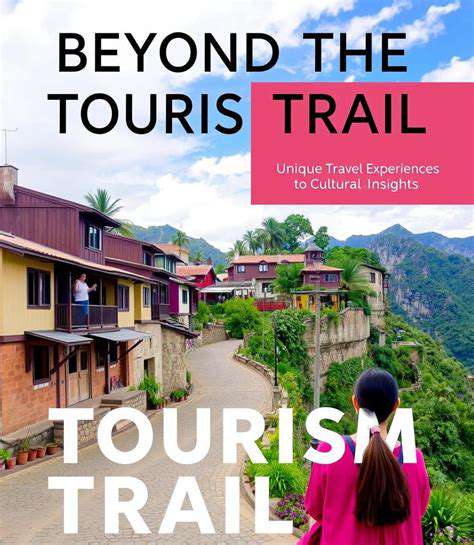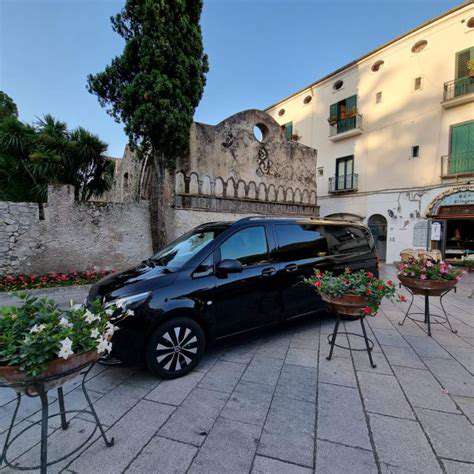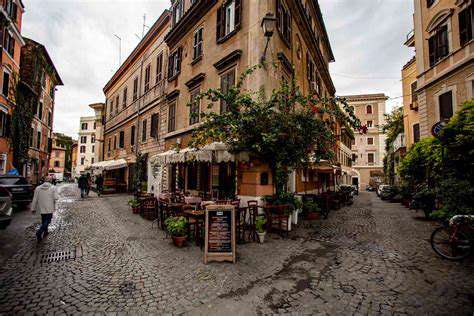Planning a Luxury Vacation Without Breaking the Bank

Factors to Consider When Choosing a Vacation Spot
Planning a vacation requires thoughtful reflection on what truly matters to you. Identifying your core priorities is the foundation for selecting an ideal destination. Ask yourself: Do you crave relaxation on pristine beaches, adrenaline-pumping adventures, or deep cultural immersion? Perhaps a balanced mix of these elements? Your preference for vibrant urban energy versus tranquil natural settings will dramatically shape your options and ultimately define your trip's success.
Financial considerations play an equally crucial role. Destinations vary wildly in cost - from wallet-friendly hostels to opulent five-star resorts. Being honest about your budget prevents disappointment and ensures your dream vacation aligns with reality. Remember, unforgettable experiences don't always require lavish spending.
Travel Style and Preferences
Your personality and travel habits significantly influence destination suitability. Solo explorers might prioritize destinations with strong backpacker communities, while families may seek kid-friendly resorts with ample amenities. Do you thrive on constant movement and discovery, or prefer leisurely days soaking in one location? These preferences determine whether Tokyo's electric streets or Bali's serene rice terraces better suit your temperament.
Activity preferences further refine your choices. Avid hikers should consider destinations with stunning trails, while history buffs might prioritize ancient ruins. Matching your passions to a location's offerings creates a trip where every day brings genuine excitement rather than forced enjoyment.
Travel Time and Duration
Available vacation days and destination accessibility require careful balancing. With limited time, choosing somewhere with direct flights makes more sense than a destination requiring multiple connections. Smart travelers account for jet lag and recovery time when planning itineraries. Nothing sours a short trip faster than spending half of it exhausted from travel.
Accessibility and Accommodations
Practical considerations often make or break a vacation experience. Research transportation networks thoroughly - what good is a charming village if it takes three buses to reach? Understanding local infrastructure prevents frustrating surprises during your trip. Similarly, investigate whether accommodations meet any special needs you might have, from wheelchair access to allergy-friendly kitchens.
Budget and Practical Considerations
Financial planning extends beyond flights and hotels. Savvy travelers research meal costs, attraction prices, and local transportation expenses to avoid budget blowouts. Look beyond advertised deals - sometimes paying slightly more for a centrally located hotel saves money on daily transit. Don't forget to account for less obvious expenses like travel insurance or visa fees that can add up quickly.
Proactive preparation regarding documentation and health requirements prevents stressful last-minute scrambles. Some countries require visas applied for weeks in advance, while others mandate specific vaccinations. Crossing these items off your list early ensures smooth travels.
Accommodation Alternatives: Beyond the 5-Star Hotel
Boutique Hotels: A Touch of Local Charm
Boutique properties offer experiences large chains simply can't replicate, often occupying beautifully restored historic buildings in emerging neighborhoods. These intimate spaces showcase local artistry through curated decor and regionally inspired amenities, creating immediate connections to the destination's culture. The personalized service and attention to detail make guests feel like temporary locals rather than anonymous tourists.
Many boutique hotels lead sustainability efforts in their communities, offering eco-conscious travelers opportunities to minimize their footprint while maximizing authentic experiences. From rooftop gardens supplying the restaurant to partnerships with nearby artisans, these properties often serve as gateways to understanding a destination's true character.
Guesthouses and Bed & Breakfasts: Welcoming Hospitality
These accommodations transform stays into cultural exchanges. Owners frequently share insider tips no guidebook contains - the best family-run trattoria, that hidden beach only locals know, or the perfect time to visit crowded attractions. Morning meals become social events where guests swap stories over homemade specialties, creating connections that often last beyond the stay.
The charm of these properties lies in their imperfections - the creaky floorboards of a centuries-old farmhouse, the slightly uneven walls of a converted monastery. These quirks add character absent from sterile chain hotels, providing authentic backdrops for memorable travel stories.
Vacation Rentals: Space and Flexibility
The rise of vacation rentals revolutionized family and group travel. Having separate bedrooms prevents the morning squabbles that can sour family trips, while full kitchens allow for relaxed breakfasts without restaurant markups. For longer stays, in-unit laundry proves invaluable, letting travelers pack lighter and return home without suitcases of dirty clothes.
Beyond practicality, rentals offer psychological benefits. Returning home each evening to a space that feels personal, rather than a generic hotel room, helps travelers settle into destinations more deeply. Displaying purchased local artisanal goods or leftovers from market visits makes spaces feel temporarily yours.
Camping: A Connection with Nature
Modern camping defies stereotypes of uncomfortable roughing it. Today's options range from glamping tents with proper beds and electricity to fully equipped RV parks with Wi-Fi and swimming pools. What remains constant is camping's unique ability to reconnect people with natural rhythms - waking with the sun, cooking over open flames, and falling asleep to cricket symphonies rather than city noise.
The shared experience of camping fosters unexpected camaraderie. Neighbors become quick friends over communal fire pits, exchanging travel tips and sometimes even sharing meals. For families, the simplicity of camping often leads to quality time that busy daily routines rarely allow.
Serviced Apartments: A Blend of Home and Hotel
These hybrid accommodations solve the dilemma of wanting hotel conveniences with residential comforts. After long days exploring, having a living room to sprawl in beats being confined to a standard hotel room. Kitchens allow for preparing simple meals when restaurant fatigue sets in, while in-unit laundry keeps packing manageable for longer trips.
The consistency of serviced apartments appeals to business travelers and families alike. Knowing the layout and amenities before arrival eliminates guesswork, while regular cleaning services maintain comfort without the formality of daily hotel housekeeping.
Hostels: Budget-Friendly Socialization
Modern hostels have evolved far beyond their Spartan reputations. Many now feature stylish decor, comfortable pods replacing creaky bunk beds, and amenities like coworking spaces and rooftop bars. The social atmosphere remains the biggest draw, with organized activities from pub crawls to language exchanges helping solo travelers build instant communities.
Beyond saving money, hostels offer access to local knowledge most hotels can't match. Staff often comprise passionate travelers who provide off-the-beaten-path recommendations, while fellow guests share real-time tips about places they've recently visited. This constant information exchange creates dynamic travel experiences no guidebook can replicate.
Dining Delights: Indulging in Flavorful Adventures without Breaking the Bank

Exploring Culinary Delights
Food transcends mere sustenance; it's a vibrant language communicating regional history, agricultural traditions, and cultural values. From bustling night markets where vendors proudly display generations-old recipes to quiet bistros where chefs reinterpret classics, every meal tells a story. Willingness to venture beyond familiar flavors opens doors to profound cultural understanding and personal growth.
The most memorable meals often come from unexpected places - that unassuming street cart serving perfect dumplings, the family-run trattoria with nonna cooking in back. True culinary adventure means embracing spontaneity and trusting local instincts rather than rigidly following guidebook recommendations. Some of travel's greatest joys arrive on unplanned plates.
Savoring the Sensations of Taste
Mindful eating transforms meals into meditative experiences. Noticing how spices bloom differently with each chew, how textures play against each other, how aromas trigger memories - this attentiveness deepens appreciation. Regional specialties often reflect ingenious adaptations to local conditions - the preserved foods of cold climates, the bright acidity balancing rich tropical flavors.
The most satisfying meals engage all senses simultaneously - the sizzle of meat hitting a hot grill, the vibrant colors of a farmers market haul, the tactile pleasure of tearing warm bread. These multisensory experiences imprint destinations in memory more powerfully than photographs ever could.
The Art of Presentation and Ambiance
Visual storytelling through food presentation varies fascinatingly across cultures. Japanese kaiseki's seasonal poetry differs dramatically from Spanish tapas' convivial sharing plates, yet both communicate cultural values through arrangement. Restaurants extending their aesthetic to tableware and decor create cohesive experiences where every detail harmonizes.
Thoughtful environments amplify culinary enjoyment. A perfectly seared steak tastes better in a buzzing steakhouse than a fluorescent-lit cafeteria, proving that context profoundly influences perception. Seek establishments where the atmosphere complements the cuisine for fully realized dining experiences.
The Social Aspect of Dining
Shared meals function as social glue across civilizations. Whether it's Italian families gathering for Sunday lunch or Turkish friends meeting over endless cups of tea, these rituals strengthen bonds. Travelers invited to participate in local dining traditions receive rare glimpses into authentic community life beyond tourist performances.
Breaking bread remains humanity's most universal peace offering. The simple act of sharing food bridges language barriers and cultural differences, creating connections that often outlast the meal itself. Some of travel's most meaningful relationships begin with a hesitant What's that you're eating?
Culinary Innovations and Trends
Globalization and environmental concerns drive fascinating culinary evolution. Chefs rediscover ancient preservation techniques to reduce waste, while scientists develop plant-based proteins rivaling meat. The farm-to-table movement reconnects urban diners with seasonal rhythms, and technology enables unprecedented flavor experimentation.
Today's most exciting dining exists where tradition and innovation intersect - the Tokyo sushi master applying molecular techniques, the Oaxacan chef reimagining ancestral moles. Tracking these developments makes every trip a chance to taste the future while honoring the past.



![Planning a Family Camping Trip [Beginner's Guide]](/static/images/27/2025-04/MakingtheMostofYourCampingExperience.jpg)







